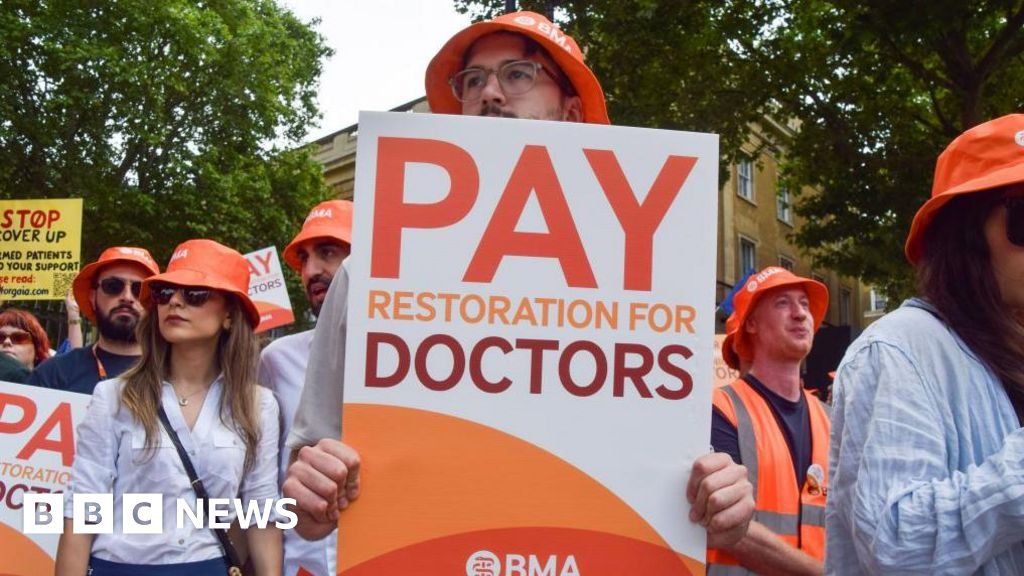Ongoing Negotiations Between Resident Doctors and Health Secretary in England: Aiming to Avert Strike Action
In England, resident doctors have shared that they are engaged in "constructive discussions" with the Health Secretary, Wes Streeting, as they work to prevent a planned strike. Meetings between the doctors and government representatives are set to continue over the coming days, focusing on resolving a dispute regarding pay.
Originally announced last week, the doctors, formerly referred to as junior doctors, plan to strike for five consecutive days from July 25 to July 30, 2025, citing concerns over compensation.
The British Medical Association (BMA), representing the doctors, has noted that current talks have involved exploring "creative solutions," with a willingness to consider a range of options.
Despite this, the government stands firm on its proposal of a 5.4% pay increase for the year and is looking into alternative strategies to enhance working conditions for the medical staff.
Following the discussions, Mr. Streeting expressed optimism, stating, "We had a constructive conversation with the BMA today. Our aim is to continue these discussions in the upcoming days to prevent strike action." He emphasized that while new pay increases are off the table—especially after a significant 28.9% rise in recent years—the government remains committed to improving the work environment for resident doctors. He urged the BMA to reconsider the strike, highlighting the potential negative impact on patients and emphasizing the need to collaborate towards improving conditions within the NHS.
BMA representatives indicated there’s a "window of opportunity" for further dialogue to take place. Dr. Ross Nieuwoudt mentioned, "We addressed numerous critical issues and are looking for genuine solutions to enhance the value of being a doctor in the UK."
While resident doctors will see an average pay increase of 5.4% starting in August, they argue this still leaves their remuneration roughly 20% lower than it was in 2008, based on the Retail Price Index measurement which considers housing costs and student loan interests. The BMA asserts that this year’s increase falls short of adequately addressing the decline in doctors’ pay over the last 17 years.
In announcing the impending strikes, Dr. Melissa Ryan and Dr. Nieuwoudt expressed that doctors feel they have "no choice" due to the lack of a satisfactory offer to restore their pay. Mr. Streeting dismissed the strike as "unreasonable," questioning why healthcare professionals would consider further action when the NHS is facing significant challenges.
The resident doctors have already undergone 11 strike actions in 2023 and 2024, with prior disputes resulting in a retroactive award of a 22% salary increase over two years from the incoming Labour government. It’s important to note that this situation pertains specifically to England, as resident doctors in Scotland, Wales, and Northern Ireland negotiate their pay directly with their respective devolved governments.
Currently, resident doctors in England earn between £37,000 and £70,000 per annum for a standard 40-hour work week, with additional compensation for night shifts and weekends. As negotiations proceed, the focus remains on both pay and overall working conditions, impacting the future landscape of healthcare in the UK.

